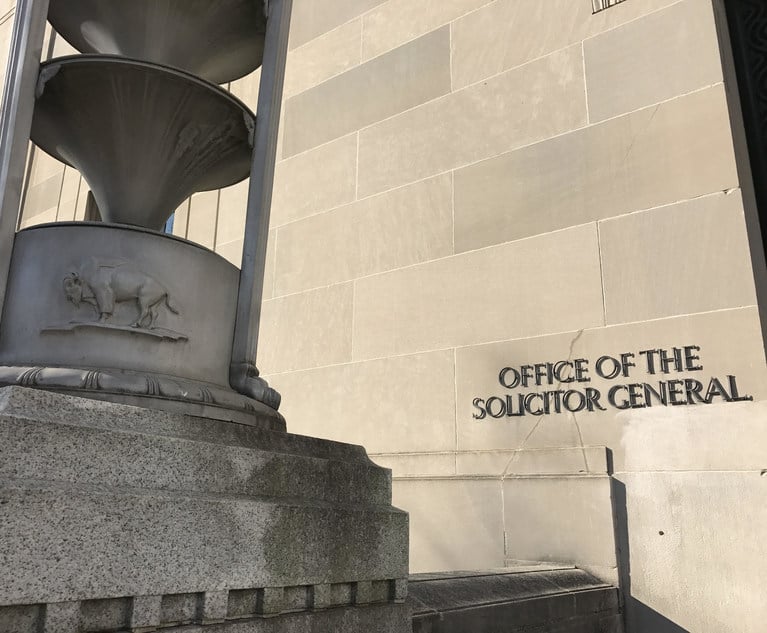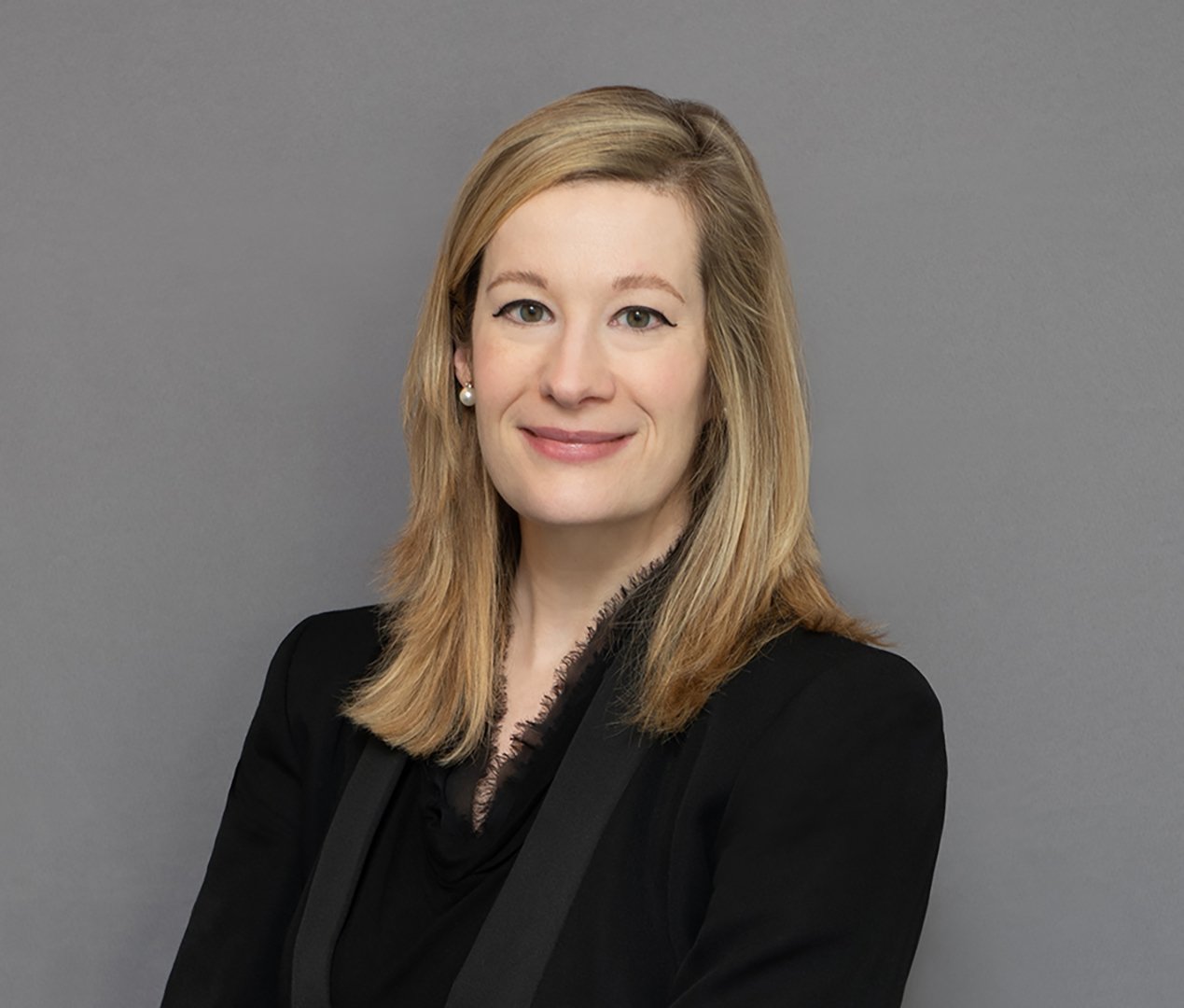 Credit: LightField Studios/Shutterstock.com
Credit: LightField Studios/Shutterstock.com The Marble Palace Blog: The Role of Justices and Judges in a Tumultuous Time
Judges, lawyers, law professors and even journalists weigh in on how the Supreme Court and other courts could help calm the divisions in the nation.
December 30, 2021 at 01:05 PM
5 minute read
As 2021 winds down, here are some thoughts for next year on how justices and judges might help calm the political and cultural turmoil sweeping across the nation. The ideas come from 13 articles in a recent edition of the Journal of Appellate Practice and Process housed at The University of Arizona James E. Rogers College of Law, along with The National Institute for Trial Advocacy.
"This issue tackles a timely and important topic—what can be done to ameliorate the divisions in our country. The prefaces and articles provide key insight into the role that judges might play in this endeavor," said the journal's editor-in-chief Tessa Dysart.
Dysart recruited judges, lawyers, law professors and yes, even a journalist (yours truly). Some trimmed excerpts:
— Therese Stewart, associate justice, California Court of Appeal, First Appellate District: "Americans have always had differences, and courts have played a role in resolving disputes that touch on issues of deep and abiding social disagreement. The public discourse has deteriorated in recent decades and one can debate whether judicial, even (or especially) Supreme Court discourse has deteriorated along with it. But judges are role models, and the tone and content of what we write contributes to the dialogue, for better or worse. If our own discourse is one-sided and uncivil, the public will be justified in viewing the judicial branch as just a group of fellow shouters – people in robes with their own axes to grind, undemocratically imposing their views at the expense of democracy."
— Erwin Chemerinsky, dean and law professor, University of California, Berkeley School of Law: "I recommend that the president of the United States adopt a merit-selection approach to filling vacancies on the Supreme Court and the lower federal courts. The president should promulgate an executive order, just as President Jimmy Carter did, creating a merit-selection panel for Supreme Court vacancies, as well as such panels for federal courts of appeals and district court vacancies. Each merit-selection panel should be ideologically diverse, including Democrats and Republicans, lawyers and non-lawyers. The role of the merit selection panel should be to present the president the most qualified individuals to consider for each vacancy. The merit-selection panel should be charged with giving the president at least two names for each vacancy, and the president should promise to pick the nominee from this list."
— George Nicholson, retired associate justice at Court of Appeal, Third Appellate District, State of California: "Judges, especially, appellate court and supreme court judges, are among those best able to help calm this social and cultural storm. Why is that so? Because judges are role models for those in and out of the legal profession, and they are our nation's neutrals, cloaked with community standing, credibility, prestige, and power. I humbly and respectfully suggest we share a duty, which we can pursue in ethical ways, to leverage our temporary, lofty circumstances to help rekindle good will, common sense, and common decency among our conflicted factions."
— JoAnn Jayne, chief justice of the Navajo Supreme Court: "Within the confines of professional responsibilities enumerated by rules, lawyers and judges are taught that Navajo thinking involves talking things out. In Navajo tradition, government and governing was a matter of the consensus of the people, and Navajos had a participatory democracy. It was, in fact, one of the purest democracies in human history. Long before the United States of America extended the privilege and right to vote to those who did not own property and to women, all Navajos participated in public decisions. Therefore, there is a strong and fundamental tradition that any Navajo can participate in the processes of the government."
— Michael Greve, law professor at Antonin Scalia Law School: "Now more than in less contentious times, I propose, courts—judges qua judges—should strive to remain an institutional haven from a turbulent, divisive politics. To that end, courts must supply impartiality and fairness to litigants, respect for law (not as an instrument of social control but as the foundation of a liberal order), reasoned decision-making, and professional integrity. By and large, the public appears to have confidence that the judiciary, federal and state, will in fact exercise those virtues. However, the virtues require careful cultivation—especially under conditions of intense social conflict, high partisan polarization, and relentless public agitation over a supposedly partisan (federal) judiciary."
— Lance Wickman, general counsel of The Church of Jesus Christ of Latter-day Saints: "Lawyers can be role models for what it means to disagree vigorously about vitally important matters in a spirit of goodwill and even friendship. Oral argument in the U.S. Supreme Court takes on a more civilized tone because advocates commonly refer to opposing counsel as 'my friend.' Something of that same spirit ought to influence how lawyers interact with each other."
— Tony Mauro, semi-retired journalist and blogger at The National Law Journal: "Journalists who cover the courts are more than innocent bystanders. As fair and neutral as we may be when we write stories that begin with 'The Supreme Court today ruled…' we play a role that can fan the flames of division in the legal realm, especially if we get things wrong or we exaggerate the divisions that inevitably occur in an adversarial system when one party wins and the other party loses. Many judges are still reluctant to interact with reporters about anything. But that needs to change. Whenever I talk to young reporters on the court beat, I urge them to make contact with judges by phone or in person. If they can build trust with one another, the judge may even help the reporter understand a decision that is difficult to decipher. It is worth a try. It will make for better journalism."
NOT FOR REPRINT
© 2025 ALM Global, LLC, All Rights Reserved. Request academic re-use from www.copyright.com. All other uses, submit a request to [email protected]. For more information visit Asset & Logo Licensing.
You Might Like
View All
Trump's DOJ Withdraws Opposition to Law Banning Trans Care for Minors

Supreme Court Denies Trump's Request to Pause Pending Environmental Cases

January Petitions Press High Court on Guns, Birth Certificate Sex Classifications

‘Diminishing Returns’: Is the Superstar Supreme Court Lawyer Overvalued?
Trending Stories
- 1How Alzheimer’s and Other Cognitive Diseases Affect Guardianship, POAs and Estate Planning
- 2How Lower Courts Are Interpreting Justices' Decision in 'Muldrow v. City of St. Louis'
- 3Phantom Income/Retained Earnings and the Potential for Inflated Support
- 4Should a Financially Dependent Child Who Rejects One Parent Still Be Emancipated?
- 5Advising Clients on Special Needs Trusts
Who Got The Work
J. Brugh Lower of Gibbons has entered an appearance for industrial equipment supplier Devco Corporation in a pending trademark infringement lawsuit. The suit, accusing the defendant of selling knock-off Graco products, was filed Dec. 18 in New Jersey District Court by Rivkin Radler on behalf of Graco Inc. and Graco Minnesota. The case, assigned to U.S. District Judge Zahid N. Quraishi, is 3:24-cv-11294, Graco Inc. et al v. Devco Corporation.
Who Got The Work
Rebecca Maller-Stein and Kent A. Yalowitz of Arnold & Porter Kaye Scholer have entered their appearances for Hanaco Venture Capital and its executives, Lior Prosor and David Frankel, in a pending securities lawsuit. The action, filed on Dec. 24 in New York Southern District Court by Zell, Aron & Co. on behalf of Goldeneye Advisors, accuses the defendants of negligently and fraudulently managing the plaintiff's $1 million investment. The case, assigned to U.S. District Judge Vernon S. Broderick, is 1:24-cv-09918, Goldeneye Advisors, LLC v. Hanaco Venture Capital, Ltd. et al.
Who Got The Work
Attorneys from A&O Shearman has stepped in as defense counsel for Toronto-Dominion Bank and other defendants in a pending securities class action. The suit, filed Dec. 11 in New York Southern District Court by Bleichmar Fonti & Auld, accuses the defendants of concealing the bank's 'pervasive' deficiencies in regards to its compliance with the Bank Secrecy Act and the quality of its anti-money laundering controls. The case, assigned to U.S. District Judge Arun Subramanian, is 1:24-cv-09445, Gonzalez v. The Toronto-Dominion Bank et al.
Who Got The Work
Crown Castle International, a Pennsylvania company providing shared communications infrastructure, has turned to Luke D. Wolf of Gordon Rees Scully Mansukhani to fend off a pending breach-of-contract lawsuit. The court action, filed Nov. 25 in Michigan Eastern District Court by Hooper Hathaway PC on behalf of The Town Residences LLC, accuses Crown Castle of failing to transfer approximately $30,000 in utility payments from T-Mobile in breach of a roof-top lease and assignment agreement. The case, assigned to U.S. District Judge Susan K. Declercq, is 2:24-cv-13131, The Town Residences LLC v. T-Mobile US, Inc. et al.
Who Got The Work
Wilfred P. Coronato and Daniel M. Schwartz of McCarter & English have stepped in as defense counsel to Electrolux Home Products Inc. in a pending product liability lawsuit. The court action, filed Nov. 26 in New York Eastern District Court by Poulos Lopiccolo PC and Nagel Rice LLP on behalf of David Stern, alleges that the defendant's refrigerators’ drawers and shelving repeatedly break and fall apart within months after purchase. The case, assigned to U.S. District Judge Joan M. Azrack, is 2:24-cv-08204, Stern v. Electrolux Home Products, Inc.
Featured Firms
Law Offices of Gary Martin Hays & Associates, P.C.
(470) 294-1674
Law Offices of Mark E. Salomone
(857) 444-6468
Smith & Hassler
(713) 739-1250








